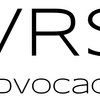OPEN LETTER FOR THE DISTRICT OF SQUAMISH TO TAKE IMMEDIATE ACTION TOWARDS INCLUSIVE POLICY FOR VEHICLE RESIDENTS

OPEN LETTER FOR THE DISTRICT OF SQUAMISH TO TAKE IMMEDIATE ACTION TOWARDS INCLUSIVE POLICY FOR VEHICLE RESIDENTS
This letter is a call for the District of Squamish to take IMMEDIATE action towards inclusive policy for vehicle residents, local and tourist, who have no safe public land on which to stay due to the Camping Bylaw 2829, which forbids people from sleeping in a vehicle on public land within the District.
The exclusionary bylaws in the “Tourist Management Plan” do not work. The bylaws failure is felt in the mental and physical stress that vehicle residents experience due to the surveillance, marginalization and displacement resulting from the bylaw. Squamish residents remain concerned about garbage and protecting people's basic human right to a secure sleep. The need for inclusive policy and accessible and safe spaces to sleep is seen in the recent closure of the Walmart parking lot to overnight parking, the evictions of people from the Chief campground who overstayed the annual max 14-day limit and the violent threats directed towards vehicle residents.
As a result, the herein signed requests that the District of Squamish immediately:
- Make an emergency amendment to Schedule A Map in Bylaw 2829 and open up crown land so responsible vehicle residents can sleep safely at night
- Open the municipal owned campground for individual campers 7 days a week
- Amend the bylaw text to target problematic behaviour, which isn't isolated to any single group or demographic
- Install public toilets, garbage cans and Leave No Trace education signage in public areas, for tourist and locals to use
- Address the online and physical stigma and violence directed towards vehicle residents, which creates an unsafe and unwelcoming community
- Immediately divest from policing the unhoused to investing in inclusive solutions such as a Permit System and Safe Lot System as proposed by the Vehicle Residents of Squamish in 2019 (explained below)
We further call on the District of Squamish to invest in learning how the punitive no-camping policies are stigma-driven, punitive and exclusionary so as to establish a sense of belonging and trust for vehicle residents and the housed. This would be in line with the District strategic plan.
- Transparency: What is the District doing to help vehicle residents, aside from policing?
- Accessibility: the “Tourist Management Plan” outlaws vehicle residency in Squamish
- Livable community: Vehicle residency is an affordable, attainable and suitable form of diverse housing for many, despite what the District claims or decides.
- Climate Change Action: Vehicle residency is a low carbon footprint, minimal consumption lifestyle
- Connected and Livable Community: The “Tourist Management Plan” and the no-camping bylaw legitimates the stigma directed at vehicle residents and causes them mental and physical stress. It divides the community between Us and Them, which is the opposite of creating a “connected and livable community”
- Resilient People and Relationship: the principles of Diversity, Equity, Inclusion and Accessibility are absent when it comes to policy for Vehicle Residency
- The District has failed to bring “equitable, accessible, transparent, and culturally appropriate services” to the unhoused population, specifically vehicle residents
EXPLAINER
Being unhoused can be a direct result of such as low-wage jobs, discrimination, disability, gentrification, lack of resources, economic means, and the ongoing housing crisis. Additionally, vehicle residency is widely recognized as a suitable housing alternative and lifestyle that is increasingly popular, acceptable and viable for many. This is especially true among the “outdoor enthusiast”, where locals and tourists live the “adventure” #vanlife lifestyle that Squamish advertises. Whatever the reasons, vehicle residents deserve inclusive policy.
Resultantly, we ask that the District stop investing in exclusionary policies that are premised on the notion that the unhoused are deviant and a threat to the housed community in terms of safety, public image and the environment. The suite of bylaws protect property, not people. This is a form of settlement bias and structural violence that enforces and maintains social constructs such as “private” and “public” property through the enclosure of lands and the continual dismissal of vehicle residents. The bylaws do not resolve the underlying tensions and perpetuate and legitimize the stigma against unhoused peoples, while marginalizing, discriminating and reinforcing inequalities that are often based on race and class.
In 2019, the no-camping bylaw was advised against by Pivot Legal Society because it violates basic human rights, including the right to shelter and sleep, as well as the BC Human Rights Code and the Canadian Charter of Rights and Freedom. Resultantly, council received a petition with 4,092 signatures and 300+ letters in opposition to the no-camping bylaw, with many demanding inclusive policy for vehicle residents. The Vehicle Residents of Squamish (VRS), an advocacy group for those who live in vehicles, has proposed a “Permit System” where vehicle residents pay a fee to legally roam on public land and Safe Lots for those who want stability and support. These proposals include a code of conduct that emphasizes Leave No Trace, individual behavior, accountability and responsibility to the community. These suggestions were largely dismissed, as was the consultants report who was looking into inclusive policy for vehicle residents. Vehicle residents have received nothing but increased policing from this stigma driven policy. Vehicle residents do not need more policing. They need a permit system that provides safe places for people to sleep and facilities that everyone - local and visitors - can use.
The VRS will continue to challenge the logic and power hierarchies created by colonialism and assumptions that independently decide what is an appropriate type of housing and what type of life is worth living. Through a human rights approach, we advocate for inclusive policies for vehicle residents that emphasize diversity, human dignity, belonging, individual behavior, accountability and responsibility to everyone in the community. We believe in a diverse society where everyone belongs.
https://sites.google.com/view/vrsquamish
https://www.facebook.com/vrsquamish
https://www.instagram.com/vrs_squamish/

